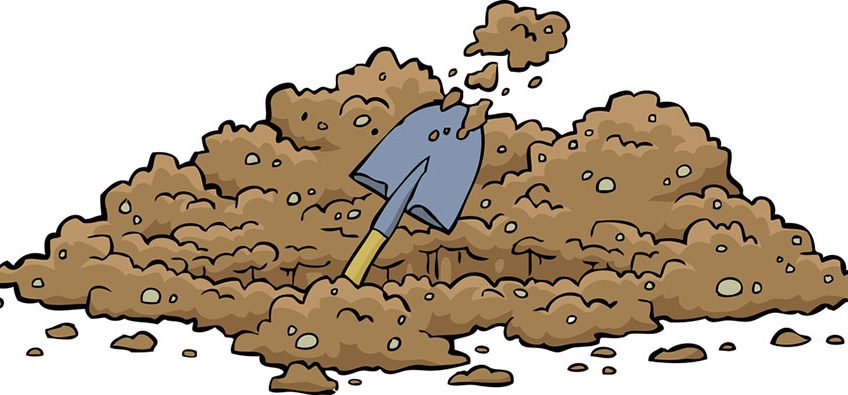
Stop Digging

Stop Digging
When you find yourself deep in a hole, the best advice is to stop digging.
Governments that find themselves in a fiscally unsustainable situation must either stop digging or destroy their currencies. When the hole is too deep to climb out, you can be sure that a crisis looms ahead.
Of course, it goes without saying that gold is the prime alternative to a currency headed for destruction.
Today I’m going to cherry-pick a few numbers from a piece this week in the Wall Street Journal that will give you an idea just how deep the government’s fiscal hole is. It’s titled “U.S. on a Course to Spend More on Debt Than Defense: Rising interest costs could crowd out other government spending priorities and rattle markets.”
- In the past decade, U.S. debt held by the public has risen to $15.9 trillion from $5.1 trillion, but financing all of that debt hasn’t been a problem. Low inflation and strong global demand for safe U.S. Treasury bonds held the government’s interest costs down.
That’s in the process of changing.
- In 2017, interest costs on federal debt of $263 billion accounted for 6.6% of all government spending…. The Congressional Budget Office estimates interest spending will rise to $915 billion by 2028, or 13% of all outlays…
- It will spend more on interest than it spends on Medicaid in 2020; more in 2023 than it spends on national defense; and more in 2025 than it spends on all nondefense discretionary programs combined, from funding for national parks to scientific research, to health care and education, to the court system and infrastructure, according to the CBO.
- Debt as a share of gross domestic product is projected to climb over the next decade, from 78% at the end of this year—the highest it has been since the end of World War II—to 96.2% in 2028, according to CBO projections. As the overall size of our debt load grows, so too do the size of interest payments.

